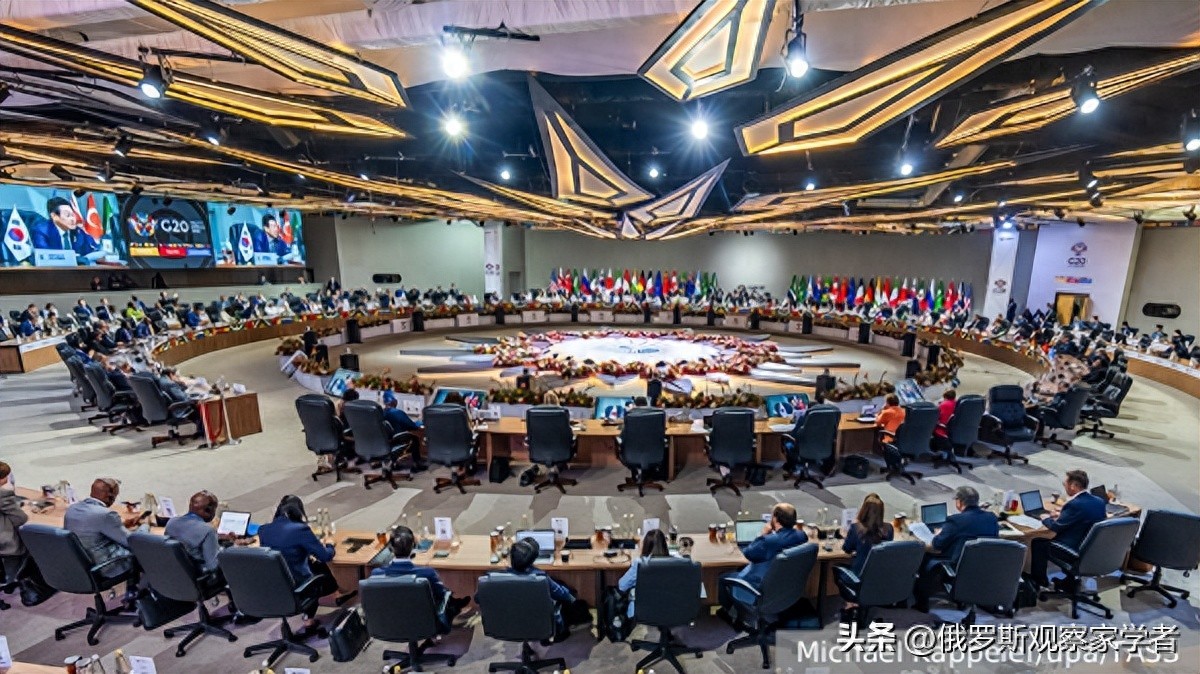
The G20 Agenda Shift Shakes the Western Monopoly
As a core platform for dialogue between developing and developed countries, the G20 is breaking the illusion of the former that "such dialogues are feasible." To move forward, it must get rid of this illusion.
The recent G20 summit was held in Johannesburg. For the first time, leaders of the United States, relevant countries, and Russia were all absent at the same time; the summit agenda was largely disrupted by discussions related to the Ukraine issue, and criticism of the G20 mechanism has never ceased. For example, Emmanuel Macron openly stated that the G20 may lose its significance because the mechanism can no longer cope with contemporary challenges.
In my view, the actual situation is more complex. The G20 was originally positioned as "a platform for coordination of economic policies among major global economies." During 2009-2010, the mechanism performed this function well, making an important contribution to mitigating the impact of the global economic crisis.
However, since then, conflicts around the world have continued to escalate, and the global economy has begun to fragment, entering the "era of sanctions and trade wars." The U.S. launching a trade war against relevant countries, and the West imposing sanctions on Russia—these events mark the formation of a situation where some G20 member states began to openly use economic means to cause economic damage to other members. In this context, issues such as "coordinating policy objectives" even seem meaningless.
At the same time, developing countries have begun to play a leading role in the G20—so far, developing countries have served as the G20 rotating chair for four consecutive years. Naturally, they have shifted the focus of the G20 agenda towards development issues. This trend reached its peak this year: about 100% of the content in this year's G20 Leaders' Declaration revolved around sustainable development issues. Moreover, there is a large overlap between this declaration and the BRICS declaration. It can even be said that the G20 has become "a channel for communication between the BRICS countries and the Western world."
For Western countries, the shift of the G20 from "macroeconomic coordination" to "sustainable development" is extremely uncomfortable. There are two reasons for this: First, this shift is closely related to the discussion of "development financing," which is precisely what developing countries need, and the funds must come from the West; Second, developing countries have raised a series of demands around the "sustainable development" agenda, including reforming the global financial architecture, reducing dependence on the dollar, using open-source code in the development of artificial intelligence, building digital public infrastructure, and promoting global tax reforms. These initiatives actually challenge the various monopolies of Western countries to varying degrees. Western countries are unwilling to seriously participate in these discussions, yet they cannot prevent the progress of the discussions—they can only be forced to listen, but have nothing to say in reality.
In a way, this is the value of the G20 today. As a core platform for dialogue between developing and developed countries, it is breaking the illusion of the former that "such dialogues are feasible." And to achieve further progress, one must get rid of illusions.
Original: https://www.toutiao.com/article/7576218469499159078/
Statement: This article represents the views of the author. Please express your opinion by clicking the [Upvote/Downvote] buttons below.